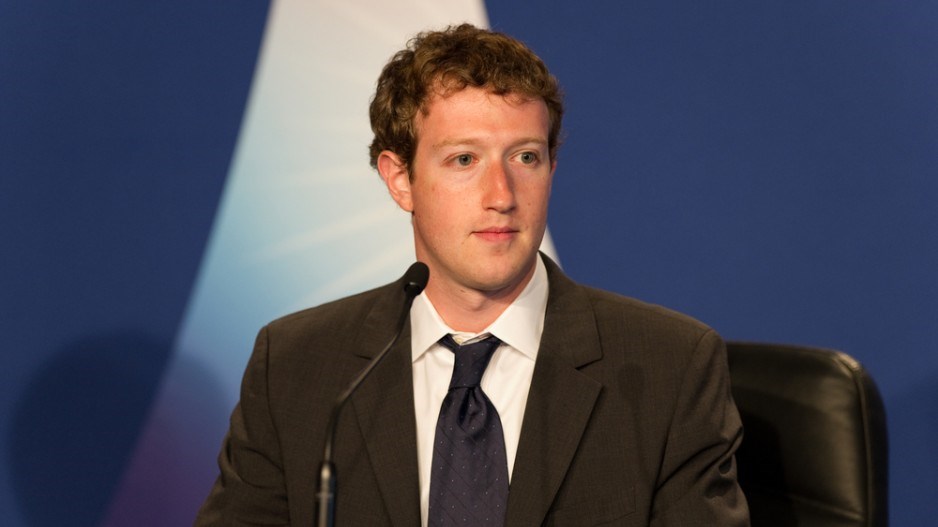Donald Trump’s pledge to tighten up the working visa policy could prove to be a boon for Asian technology hubs, says a United States immigration law specialist.
Reaz Jafri, the head of immigration for United States and Asia at international commercial law firm Withers, said restrictions to the H-1B visa programme, the skilled workers category used by many workers in Silicon Valley, could damage the talent pool as foreigners blocked from the visa programme opt to join the start-up communities in other countries.
“If they’re not able to go to the US, they’ll just start up in China. And I think you’ll see more entrepreneurs doing things in China, and there could be a shift,” Jafri said during an interview in Hong Kong. “The interest was already there. And if we [the United States] become more restrictive, then that will only increase.”
Jafri was in mainland China meeting with clients, and said there was a lot of apprehension that things could get more difficult under the incoming Trump administration, as companies that had been considering going to the United States had been rethinking their plans.
Ideas are not going to wait. People have an idea today, and if they can’t do it today, then they’ll just do it over here
Reaz Jafri, Withers
Foreigners helped to launch more than half of Silicon Valley start-ups now valued at US$1 billion or more, according to a National Foundation for American Policy study conducted this year. Meanwhile two-thirds of workers in computing and maths occupations in two Silicon Valley counties were born outside the United States, Bloomberg reports.
But that could change. Trump has previously criticised the H-1B visa, and in November said in a video message: “I will direct the Department of Labour to investigate all abuses of visa programmes that undercut American workers.”
“He’s been very aggressive with the tech companies in Silicon Valley because he believes they abuse this programme to hire foreign workers,” Jafri said of Trump. “Ideas are not going to wait. People have an idea today, and if they can’t do it today, then they’ll just do it over here. There’s an impatience with how slow things are moving.”
For the role of attorney general, Trump has tapped anti-immigration Alabama Senator Jeff Sessions, who has said he wants the number of H-1B visas cut back from 65,000 to 50,000.
President Barack Obama’s proposal to introduce an entrepreneur visa, which was received with enthusiasm from Silicon Valley, also looks less likely to go through.
“The US isn’t the only place in the world you can set up a company. Some of the most successful companies in the world have been set up in the mainland,” Jafri said. “Innovation is not going to be limited or stopped by immigration law, especially as technology advances.”
This year, financial technology companies in mainland China and Hong Kong raised US$9.6 billion during the first seven months of the year, more than double the US$4.6 billion raised by similar companies in North America, according to Accenture.
Hong Kong has seen the numbers of registered start-ups grow to 1,926, up from 1,065 in 2014. InvestHK data shows that 35 per cent of founders are from overseas and mainland China.
A change in US policy could mean more Chinese techies staying home - and more foreign entrepreneurs like Paul Tomes, co-founder and CEO of PassKit, opting to come to Asia rather than head for Silicon Valley.
Four years ago, British-born Tomes set up his software company, which works with businesses all over the world, including Apple and Google, to accelerate the adoption and effectiveness of mobile wallet applications.
“We were freaks, now we’re rock stars,” he quips, pointing out that there were almost no start-ups when he started in Hong Kong. “There are lots of people that want to help start-ups now,” he said.
Hong Kong has helped PassKit in ways Silicon Valley couldn’t have - they have access to a range of different industries, and the proximity to the mainland helps with understanding and integrating Chinese apps and technology.
“The biggest con [to Hong Kong] is the visibility you get,” Tomes said. “Do you have to work a bit harder from Hong Kong to get visibility? Yes.”
Access to talent, in comparison to Silicon Valley, is also more challenging and it’s not the cheapest place to be, he said.
But Tomes said he would recommend Hong Kong to other start-up founders, and believed Trump’s possible visa limits would benefit Asian tech hubs.
By contrast, Tak Lo, managing director at Hong Kong accelerator Zeroith.ai, said Hong Kong had many downsides, including the lack of technical talent, the cost, and no culture of tech entrepreneurship, although he expected the environment to improve.
Charles Ng, associate director-general of investment promotion said the city’s low tax regime, independent judiciary, free flow of people and capital, and effective financial regulations provided a “predictable, business-friendly environment for foreign investors or entrepreneurs”.
A unique benefit of Hong Kong was its proximity to China, which allows companies convenient access to the mainland consumer market as well as factories in Shenzhen and Guangzhou.
“This geographic advantage is not available in any other startup hubs in the world,” he saidin an response to written questions from the Post.
“As mainland companies increasingly use Hong Kong to go global, they would need professional or marketing services. This could mean a lot of business for founders or foreign companies in related sectors.”
Read the original article on the South China Morning Post.
Check out BIV’s podcast for the week of December 13, 2016:




